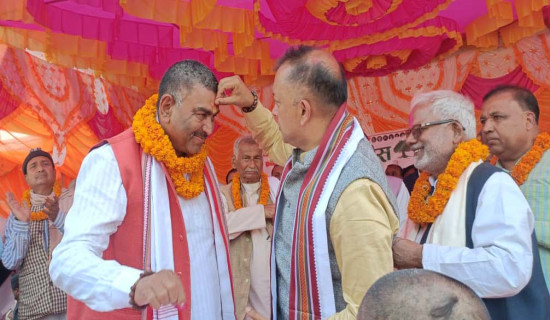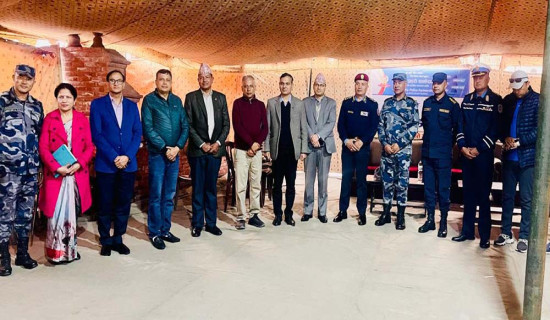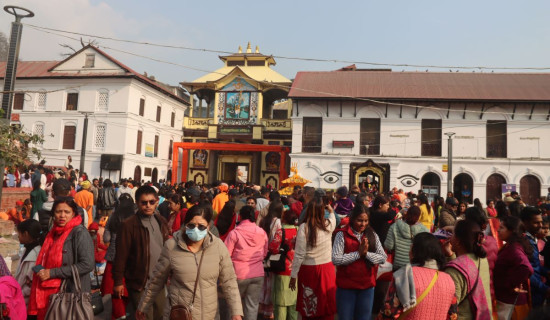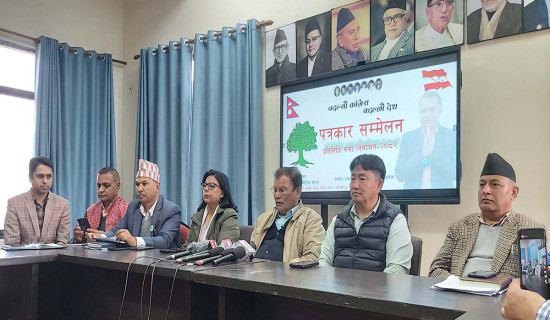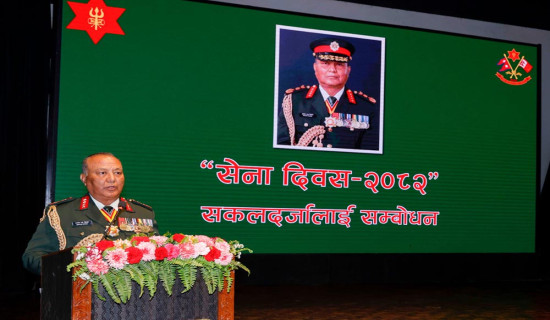- Sunday, 15 February 2026
Cycle of Migration and Loneliness of Parents in Nepal
 Sangita Pokhrel
Sangita Pokhrel
As I reflect on the lives of many parents in Nepal today, a pressing question arises: how do they truly feel as their homes grow quieter? My own family is no exception. Out of a once-large family of 13, only my parents-in-law remain in Nepal. Their once-lively home stands silent, with all their children and grandchildren living abroad.
Empty Homes
This story is not just about my family—it is a reality shared by hundreds of thousands of Nepali families. Many parents across the country find themselves alone as their children settle abroad. The once-bustling yards, filled with the laughter of children, now sit overgrown and silent. The rooms that echoed with playful sounds or occasional cries are now sits empty and still. Homes that were once filled with love and shared meals have become quiet, almost deserted, leaving behind a profound sense of emptiness. Festivals like Dashain and Tihar once celebrated with joy and family togetherness, have lost their vibrancy. Parents now offer blessings over video calls, but the warmth and spirit of these celebrations feel distant, as the very essence of togetherness slowly fades away.
Next 10 Years
Despite efforts by schools and universities in Nepal
to improve education and reduce the need to study abroad, the trend of young
people leaving the country continues to rise. This has led to a significant
brain drain, with local universities facing shrinking enrolment rates. However,
it is not just students seeking education abroad; highly skilled professionals
and workers are also leaving in increasing numbers. According to the data, in
2023 alone, nearly a million Nepalis left the country—775,000 for work and
100,000 for education. This is the largest wave of migration in Nepal's
history, and it doesn't even include those heading to India. The departure of
both students and skilled workers is creating a vacuum that raises concerns
about the future of Nepal’s workforce and economic development.
What does this mean for the future of our country?
If this trend continues, what will Nepal look like in the next decade? Will the
youth continue to leave, leaving behind only their elderly parents? These are
questions that force us to reflect deeply on the direction our society is
heading. The lack of opportunities in Nepal compels many to migrate. But if
this continues, the structure of our society will face serious challenges.
The elderly population in Nepal will grow, but the
absence of young people will be more noticeable. While remittances may bring
economic stability, the emotional, social, and familial bonds that hold our
communities together will gradually erode. For many elderly parents, this will
deepen the loneliness they already feel.
Dilemma of Returning
Many Nepali youths living abroad do have a desire to
return to Nepal, but it’s not an easy decision. After settling in foreign
countries, they become accustomed to the lifestyle, the facilities, the security,
and the better prospects abroad. Returning to Nepal to start a new is fraught
with difficulties. The instability, corruption, and lack of opportunities make
it hard for anyone who wants to come back and establish themselves.
The pull of foreign lands, with their promises of
better healthcare, education, and social security, keeps many Nepali youths
from returning. Even those who want to come back fear the uncertainties that
await them in Nepal. As a result, many choose the comfort of foreign lands over
the struggle of returning to Nepal.
What Can We Do?
The government's efforts to provide basic
services—such as quality education, healthcare, and safe transportation—often
fall short. Regular reports of plane crashes, unsafe roads, and flooding remind
us of the ongoing infrastructure issues. The healthcare system is similarly
problematic, with many families having to sell property to cover exorbitant
medical costs, placing a severe burden on middle-class households. This makes
the idea of returning even more difficult for those living abroad.
Addressing these challenges is no easy task. Many
Nepalis have lost faith in political leaders to bring about meaningful change.
Even parents hope their children find better futures abroad, and many young
people hesitate to invest in a system they see as broken.
But change is necessary. Nepal must create real
opportunities for its youth to encourage them to stay—or return. This requires
a collaborative effort from both the government and the private sector to
promote investment, good governance, and transparency. Reducing corruption and
improving infrastructure will create an environment where returning Nepalis
feel welcomed and empowered to contribute.
In this context, we must also confront the emotional
and social impacts of migration. Financial resources alone cannot replace the
love, companionship, and care that are the foundations of strong families and
communities. We must find ways to bridge the growing divide between the elderly
left behind and the youth living abroad. This is essential for the future of
Nepal.
(Author Pokhrel can be reached at sangita@zetvio.com)









